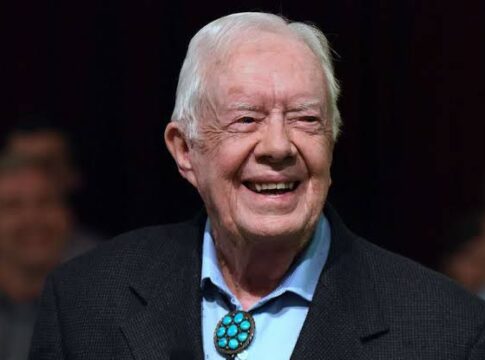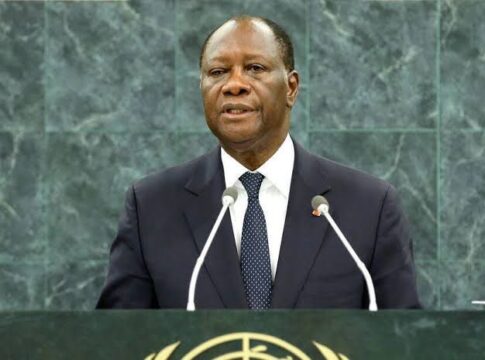Jimmy Carter’s death at 100 marks the end of a chapter in American history shaped by faith, service, and humanity.
Carter, who passed away peacefully in his Plains, Georgia, home after nearly two years in hospice care, leaves behind a legacy of compassion, diplomacy, and unwavering commitment to justice.
For decades, Carter’s life intertwined politics, faith, and service. His tenure as the 39th U.S. President (1977–1981) was defined by landmark achievements like the Camp David Accords, which brokered peace between Israel and Egypt, and an emphasis on human rights. “We never dropped a bomb, fired a missile, or killed another person during my presidency,” Carter reflected in a 2020 documentary. His adherence to Christian principles shaped not only his political decisions but also his personal life.
A Life Built on Faith and Service
Born on October 1, 1924, in Plains, Georgia, Jimmy Carter grew up in a farming family, learning the value of hard work. After graduating from the U.S. Naval Academy in 1946, Carter served as a submariner in the Navy. His life took a pivotal turn in 1953 when he resigned his commission to manage his family’s peanut farm after his father’s death.
READ MORE: Nigeria Aims for 15% African Pharmaceutical Market Share by 2030: Health Minister
Carter’s public service began locally, but he quickly rose to state and national prominence. Elected Georgia’s governor in 1971, he used his platform to promote civil rights and equality. By 1976, Carter became the Democratic nominee, promising a fresh start for a nation still reeling from the Watergate scandal.
Faith in Action
Carter’s presidency was deeply influenced by his faith. His Baptist roots led him to believe in justice and compassion as guiding principles. “Christians are called to plunge into the life of the world,” Carter wrote in his 2018 book, Faith. Despite his devout beliefs, Carter maintained a strict separation between church and state, advocating for religious freedom.
His approach resonated globally. In 2002, he received the Nobel Peace Prize for his efforts in advancing peace and human rights. The award recognized not just his presidential achievements but also his work with The Carter Center, an organization he founded to promote democracy, alleviate poverty, and combat diseases like guinea worm.
Sundays with Jimmy
Even after leaving the White House, Carter’s connection to his community remained steadfast. For decades, visitors from around the world gathered at Maranatha Baptist Church in Plains to hear Carter teach Sunday school. Jan Williams, a church volunteer, described the crowds: “We went from a few visitors to hundreds. He made everyone feel welcome.”
Carter’s lessons intertwined Biblical teachings with global issues, offering a perspective rooted in morality and justice. After each service, attendees lined up for photos with the former president and his wife, Rosalynn.
A National Farewell
Carter’s passing on December 29, 2024, has prompted tributes from world leaders and citizens alike. U.S. President Joe Biden, set to deliver Carter’s eulogy, declared January 9 a national day of mourning. A state funeral at the Washington National Cathedral will honor Carter’s life, followed by a private burial in Plains, next to his beloved wife Rosalynn.
As flowers adorn the Carter Presidential Center, the world remembers Jimmy Carter not only as a president but also as a man of profound integrity and humility. His journey from a peanut farm to the White House remains an enduring testament to the power of faith, hard work, and a commitment to humanity.




